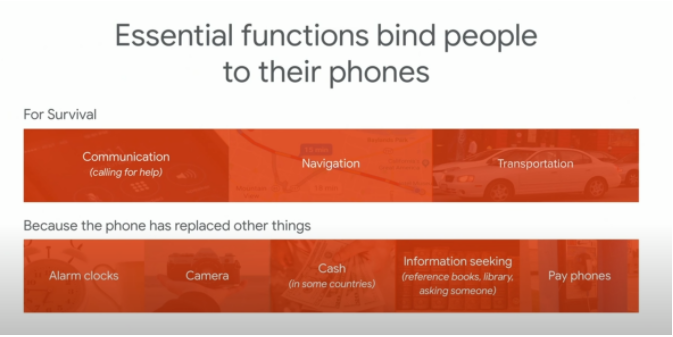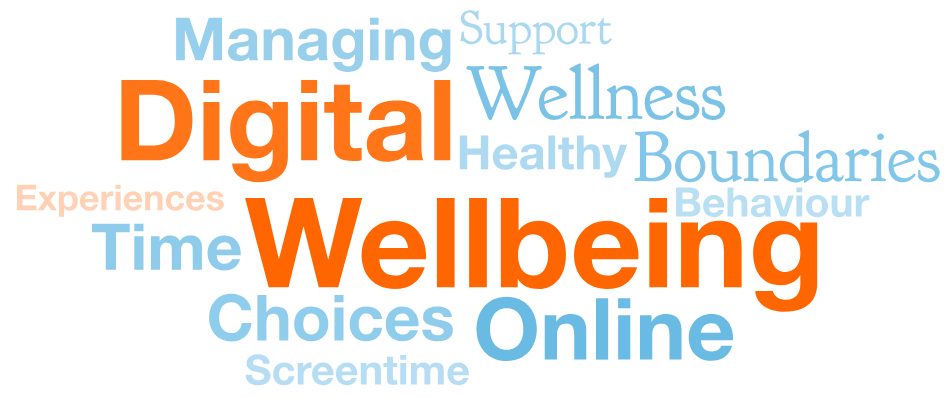Jacqueline Geekie is the Public Libraries Representative on the Information Literacy Group and is the Information Literacy and Learning Librarian for Live Life Aberdeenshire.
As we approach the year mark in the pandemic, and many are still using technology every day for work, school, and in our personal lives, it is important to consider our Digital Wellbeing. There are many definitions for Digital Wellbeing however JISC has recently updated their definition as:
“Digital wellbeing considers the impact of technologies and digital services on people’s mental, physical and emotional health.” (JISC)
Have you considered how the near-constant use of technology has influenced your mental health or your connection with other humans? We need human interaction and the time will come when we are able to do that again, but for now, we need to be patient and maintain our distance and connect as much as we can through digital means. The benefits from not having to travel for hours to get to a meeting that lasts 2-3 hours and can save money but it doesn’t replace being able to chat with someone over a coffee or discussing a work project.
Thinking about this led me to ponder the question:
Whilst we work from home, do we have a good tech/life balance as well as a work/life balance?
Research by Google found that there is a growing group of people who are embracing JOMO (Joy of missing out) as opposed to FOMO (Fear of missing out) if not connected to their phone. This is the feeling of joy they have when they feel in control of their device rather than it is controlling them. The research found that there were essential functions that bind us to our phones, some for survival such as keeping in touch with others or have replaced functions such as paying for items or are waking us up in the morning.

One element of Digital Wellbeing that I am interested in is being in control of the amount of time my device inveigles into my day. This led me to investigate tools that are already on my phone which can help.
There are a range of tools for helping with digital wellbeing whether using Apple or Android devices and this clip showcases some of them. I now make use of the downtime function which allows control of the apps which can contact you during the evening and overnight and I check the amount of time I spend on it to ensure I had a good tech/life balance.
Public libraries and other organisations are also aware of Digital Wellbeing and have a range of strategies and resources which can help. Initiatives such as Shelf Help which is a range of reading materials to help young people with their mental health or books on prescription from the reading agency. Both point towards a less digital and more analogue way of life.
Nicola Sturgeon is an advocate for reading for pleasure and said at the Edinburgh International Book Festival in 2018 “If there was one thing I could make compulsory for leaders across the world it would be to read fiction.” She feels that reading fiction deepens your empathy for others. I would add while we can’t physically visit far flung places, we can go there in the books we read.
It isn’t just mental health that public libraries are concerned with but also physical health. The Scottish Library and Information Council published a report in April 2020 called Health on the Shelf which demonstrates the impact of public library services on the health of the residents in Scotland. In addition, Libraries Connected in England have a similar offer to promote a healthy lifestyle of library users.
If you want to see some practical examples of where public libraries are making a difference then have a look at Live Life Aberdeenshire which provides Live Life @ Home and Live Life Well or Worcestershire County Council’s wellbeing offer. Otherwise, check out your own public library service to see what they provide.
Hopefully, we can all make our way through this pandemic and strangest year of our lives with better Digital Wellbeing and will emerge stronger and more resilient to face the future.



